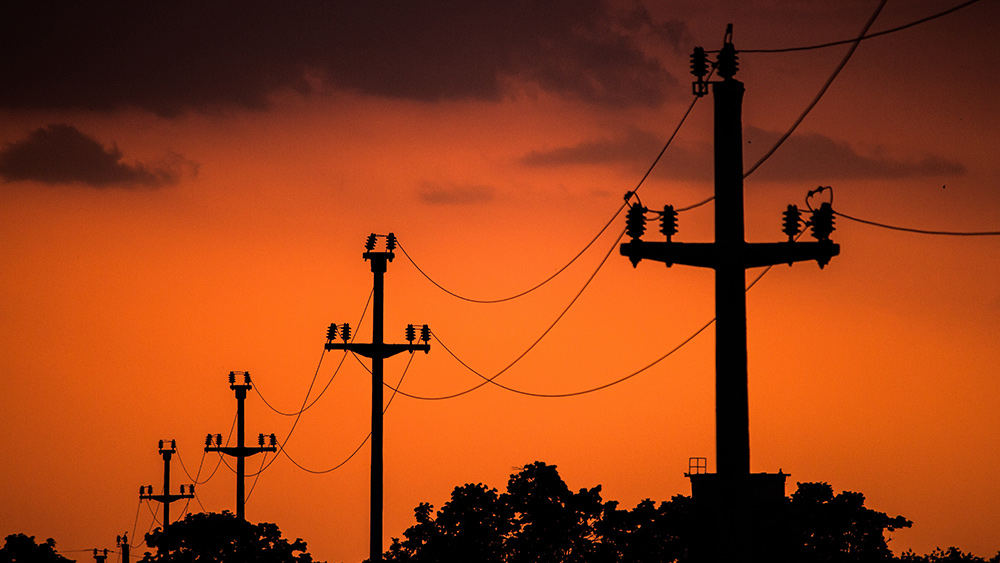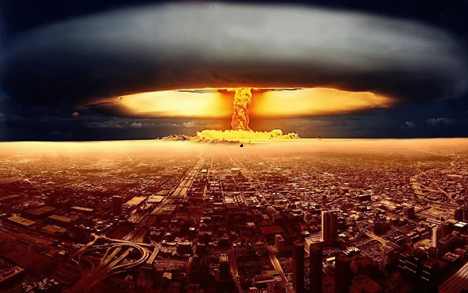
There may be more to North Korea’s latest nuclear test than meets the eye if the country’s state-run media is to be believed, and it has huge implications for preppers.
As reported by the Washington Free Beacon, an official North Korean newspaper published a column allegedly by one of the country’s scientists who claims that the latest underground nuclear test helped to advance Pyongyang’s ability to detonate an EMP weapon in space that would destroy a large portion of an enemy nation’s power grid.
The official communist party newspaper, the Rodong Sinmun, published a report on Monday regarding “the EMP might of nuclear weapons,” in which the writer provided details about how an electromagnetic pulse-producing nuclear weapon could be detonated in space.
“In general, the strong electromagnetic pulse generated from nuclear bomb explosions between 30 kilometers and 100 kilometers [18.6 miles and 62 miles] above the ground can severely impair electronic devices, electric machines, and electromagnetic grids, or destroy electric cables and safety devices," said the article, which was written by Kim Songwon, dean of Kim Chaek University of Technology in Pyongyang.
“The discovery of the electromagnetic pulse as a source of high yield in the high-altitude nuclear explosion test process has given it recognition as an important strike method,” Kim said, as reported by the Free Beacon.
Discussion of EMP weapons in an official North Korean government media organ will most likely spark further debate in the U.S. and elsewhere regarding the threat, which has previously been outlined by former CIA Director James Woolsey and Dr. Peter V. Pry, who wrote about the devastating after-effects of an EMP blast in a March column published in The Hill.
EMP weapons testing was conducted by the United States and the Soviet Union during the Cold War between 1955 and 1962, with some success. An assessment of those tests, as well as the current threat posed by high-altitude detonations of nuclear weapons, was conducted by Dr. Yousaf Butt, a scientist at the Center for Astrophysics at Harvard University. Now a senior research fellow at National Defense University, he told the Washington Post in January 2016 that while it would be difficult for a rogue state such as North Korea or Iran to pull off an EMP attack, it could be done given the right circumstances.
“I'm not trying to minimize the vulnerability. The vulnerability is there,” he said.
Clearly, the North Koreans are focused on perfecting this capability.
They may already have it, in fact. In a subsequent interview with Breitbart News Radio on SiriusXM last month, Pry told host Aaron Klein that the North Koreans could detonate a nuclear weapon mounted aboard one of two satellites currently orbiting Earth above the U.S.
“We should not be tolerating the North Korean satellites that are orbiting over our country. There are two of them. And the intelligence community is still silent about those,” he said of the KMS 3-2 and KMS-4 earth observation satellites Pyongyang launched in April 2012 and February 2016, respectively.
“The EMP Commission has officially been warning about those satellites especially now that the (intelligence) community admits that North Korea can miniaturize warheads,” Pry told Klein. “Our argument all along has been that they could make weapons small enough to put on those satellites that pass over the United States on the optimum trajectory for an EMP attack on North America.” (Related: North Korea could kill 90% of all Americans by dropping EMP nukes from orbiting satellites.)
He went on to predict that the North would utilize its capability should the U.S. and its regional allies preemptively attack.
Some arms control experts, Forward Observer noted, do not believe countries possess a viable EMP capability, least of all North Korea or even Iran, which is also said to still be pursuing a nuclear weapons capability.
But the U.S. government and power industry experts do, the site pointed out, citing studies and comments made by both.
If you haven’t made preparations to survive a nuclear war and a grid-down scenario, your time may be running out.
J.D. Heyes is a senior writer for NaturalNews.com and NewsTarget.com, as well as editor of The National Sentinel.
Sources include:
Please contact us for more information.





















